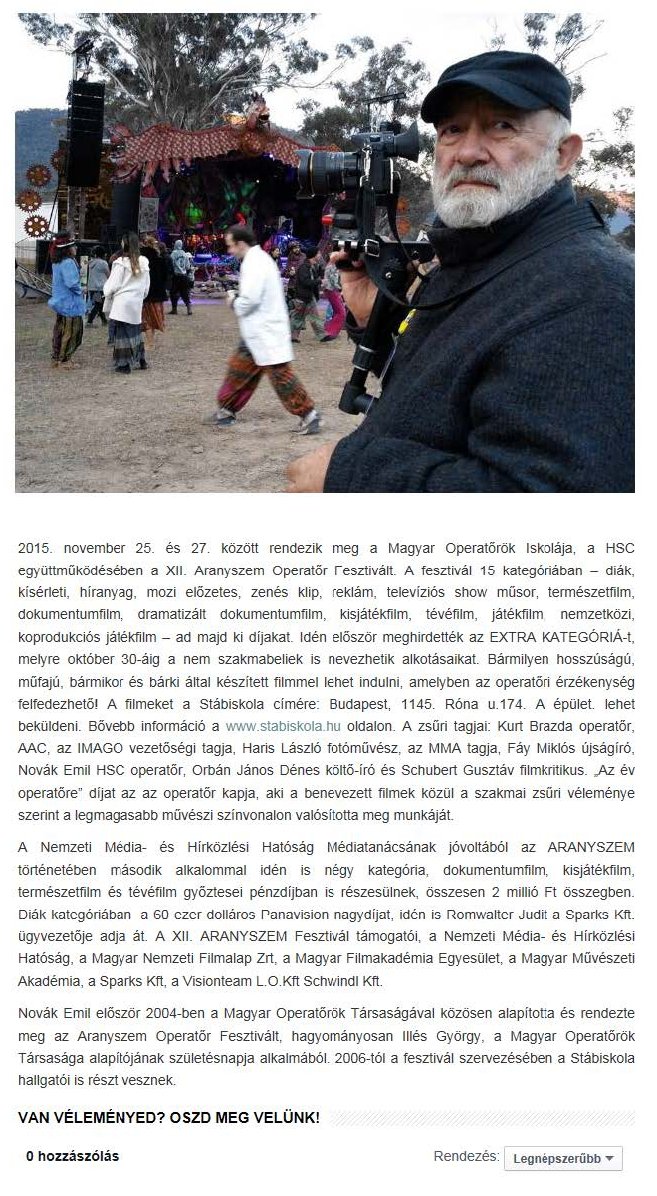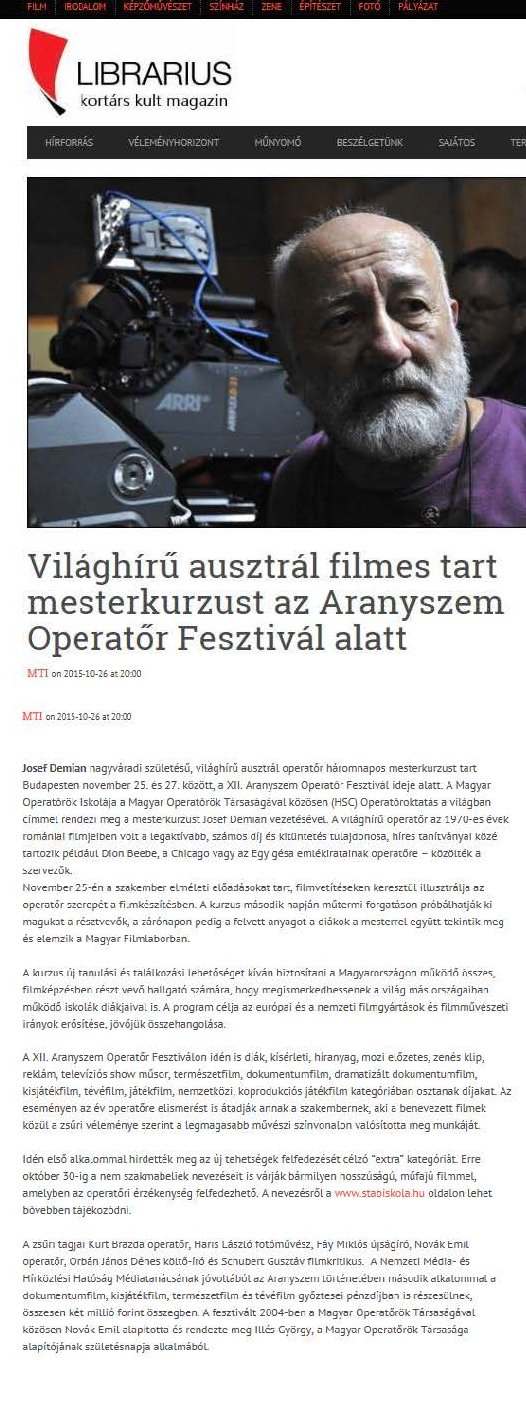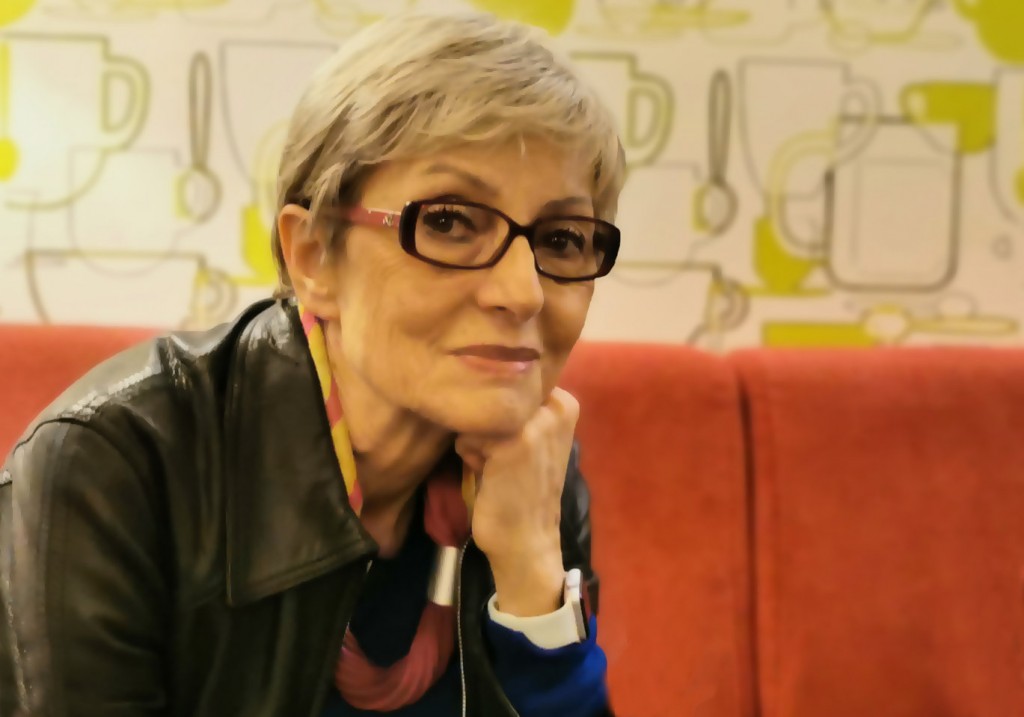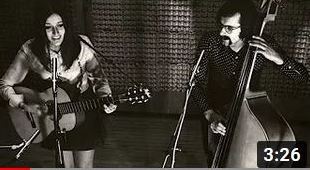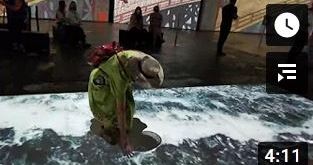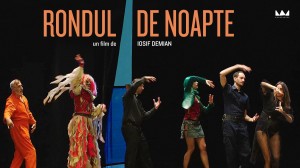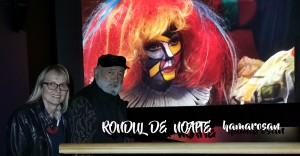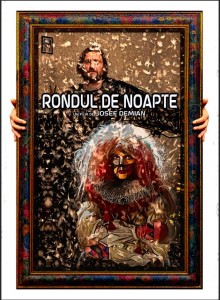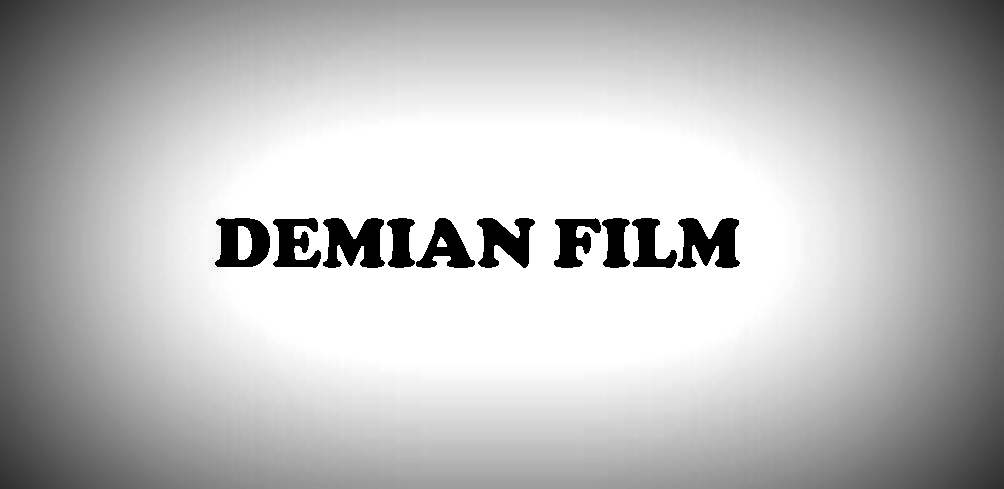The HSC Film Crew School organized a three day cinematographer event series
At the end of November The HSC Film Crew School and the Hungarian Film Academy arranged a three day cinematographer event series. On the first day representatives of foreign and Hungarian higher education institutions presented their schools at the Education of Cinematography and Motion Picture Conference which was held at the Vigadó of Pest. Then, on the second day students who are studying this profession had the chance to take part in a Master Course led by Josef Demian. Finally on the last day of the series, the awards of the XIIth Eye Golden Festival were handed over.
Education of Cinematography Conference at the Vigadó
The conference was held on November 25th to which several foreign and Hungarian institutions received invitations. Those who accepted these, presented their schools and methods of teaching. Emil Novák led the conference who is the Head of the HSC Film Crew School and the President of the Hungarian Film Academy. The goal of this event was to coordinate the future and to strengthen not just the European but also the international film productions and cinematic directions. Therefore the speakers did not just concentrate on the present but on the future as well.
After the opening Emil Novák presented the HSC Film Crew School, which for the past ten years has combined Hungarian and Australian film teaching methods. This is due to the reason that Emil Novák learned cinematography in Sydney too. We found out that the Film Crew School has a one year training course which gives opportunity to those who are interested in the profession and want to learn the basics of cinematography. They have many students who didn’t get an application to university, but wanted to learn about cinematography. So they came to the Film Crew School until they tried to apply successfully again. Yet there are students who after finishing this course manage to find job opportunities.
 Emil Novák the Head of HSC Film Crew School and the President of the Hungarian Film Academy
Emil Novák the Head of HSC Film Crew School and the President of the Hungarian Film Academy
The main invited presenter Josef Demian, who teaches at the International Film School Sydney, had one of the most interesting ideas. He believes that giving student films to airlines would be a great thing, because that way they can provide them to the passengers. So it would reach a wider range of audience and they would probably watch them because on a long flight people tend to get bored. The films which were shown on the conference strengthened this idea. Also we found out more of Josef Demian’s life in which a lot of times luck and his personality helped him to get over obstacles. Regarding the future of motion picture education, he believes that the answer to this question should be found in the past.
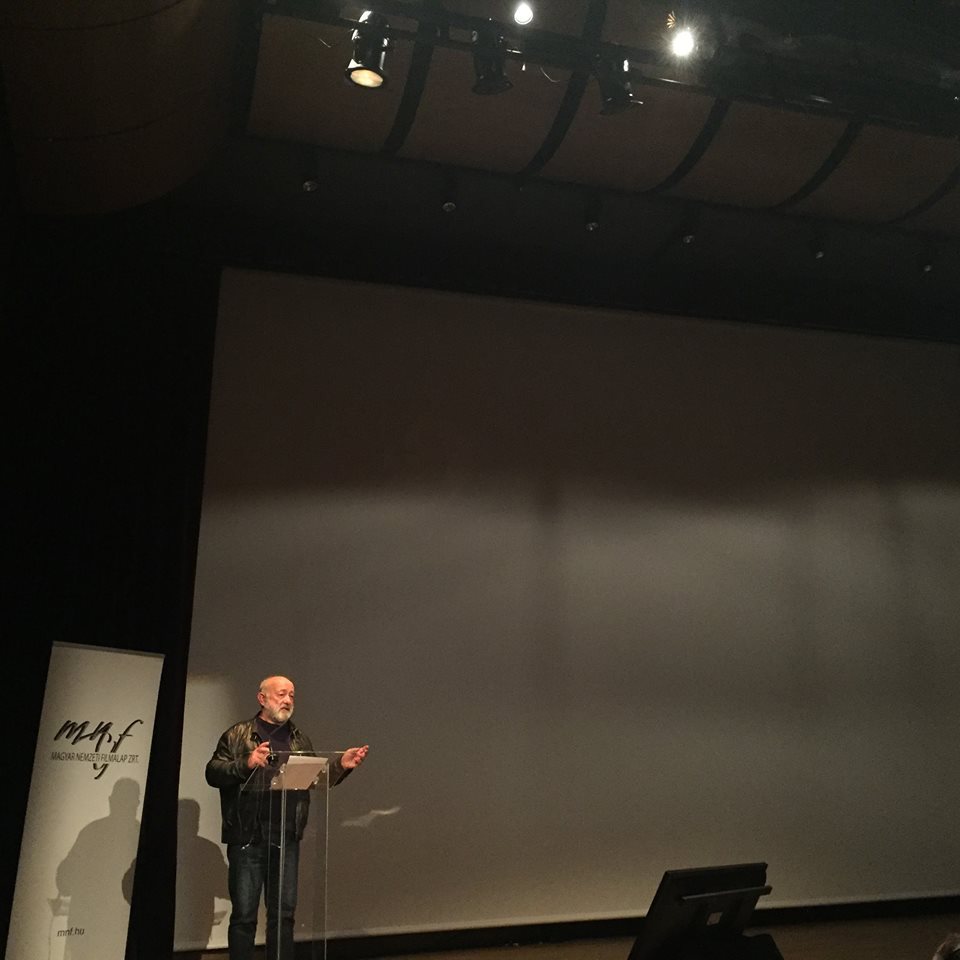
Josef Demian, keynote speaker
Marek Jícha the Head of FAMU’s (Film and TV School of Academy of Performing Arts in Prague) Department of Cinematography brought a very special presentation to Budapest. He talked about FAMU and a new course they started, which deals with a new educational program of digital restoration for cinematographers. Marek Jícha showed us the problems of restorations. The audience had the chance the see it for themselves because there were clips shown which were compared. The professor said that the biggest problem today is that the restorations aren’t giving back what the cinematographer saw who was working on the film or what the people saw in theatres when the movie was premiered. With this new technique which the professor talked about, there can be an opportunity for the next generations that they will be able to see movies like their parents and grandparents did.
 Marek Jícha
Marek Jícha
One of Hungary’s trendiest university the MOME’s (Moholy-Nagy University of Art and Design Budapest) rector also attended the conference. József Fülöp’s presentation proved that MOME is indeed one of the most popular schools in Hungary. The audience had the chance to get to know the successes of the students and also pretty much everything about the university. The animation films which the rector showed got the attention of the audience too. These films showed that, we have to respect the past but the future will always change and improve, so we have to be open minded.
 József Fülöp
József Fülöp
The other guests at the conference gave a deeper look in too the Hungarian motion picture education. Tamás Borbás a professor at the Eszterhazy Karoly University of Applied Sciences, talked about Hungary’s experiences in BA education. Dr. Zsolt Gyenes a DLA university docent and professor at the University of Kaposvár held a presentation about motion picture and intermedia. At the end of the conference three adjuncts of the Babeș-Bolyai University talked about their institution. Which showed that there is a chance for students to learn in Hungarian about media in Romania too. Dr. Katalin Simonffy talked about the education methods of editing television genres, Dr. János Tárkányi”s presentation was about the technical education of film and television. Then Dr. József Zs. Katona showed the audience the present and the future of their young students of photography, film and media.
By the end of the day the audience could not just learn about motion picture education in the XIst century but also about the profession’s representatives because the presenters gave personal experiences as examples during the conference. At the conference which was supported by the Hungarian Film Academy, Hungarian Academy of Arts and Hungarian National Film Fund everyone earned something from the audience to the presenters.

Cinematographer Master Course in the MAFILM’s studio
The Master Course was led by Josef Demian who was the invited presenter on the Education of Cinematography Conference. This opportunity motivated the students because they worked with equipment which they don’t have the chance to do so on a daily basis.
 Josef Demian és Emil Novák
Josef Demian és Emil Novák
A student from the Budapest Film Academy ELTE wrote down his experiences:
The Master Course was really interesting for every participant. Mainly because we don’t really get the chance to work with equipment like the ones at the course and the MAFILM’s studio was really special to us too. Previously we have seen equipment like these (20×20 frame, 10k ARRI lamp, Alexa, Red, Angenieux anamorph lances) on sets, but this time we didn’t just get to see them, but use them too.
The beginning of the course was hard because we had to meet the others, but then we found out that it is very useful to work with students from other schools. We had the chance to learn from each other and to meet new people which is important in our profession. Josef Demian also gave a lot to the course, since he gave exercises which we were able to do and we had the chance to be creative as well. We received great technical and creative advices from him. All in all it was a great opportunity.


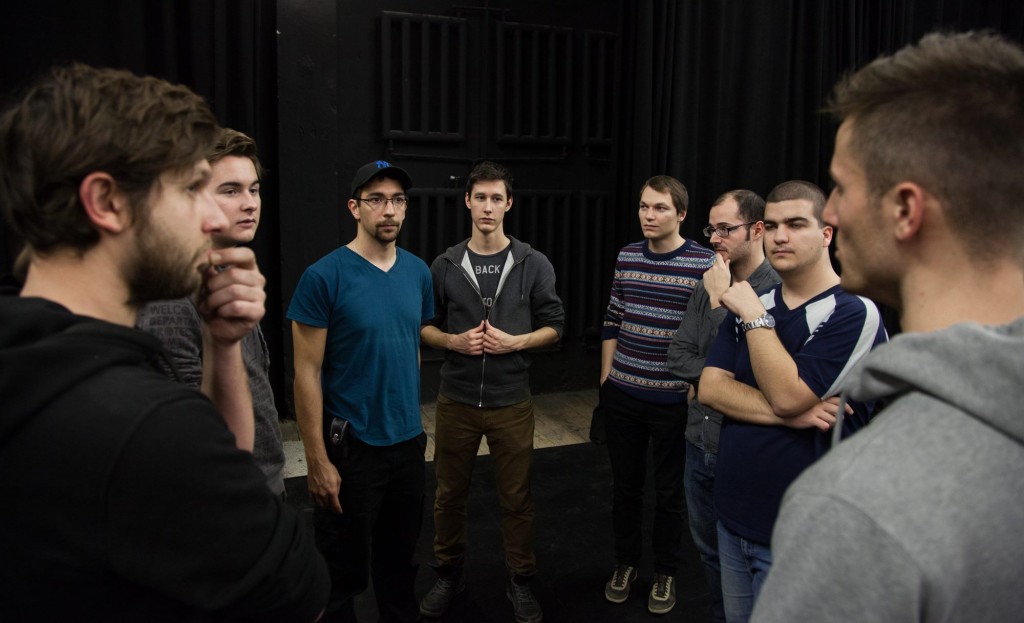

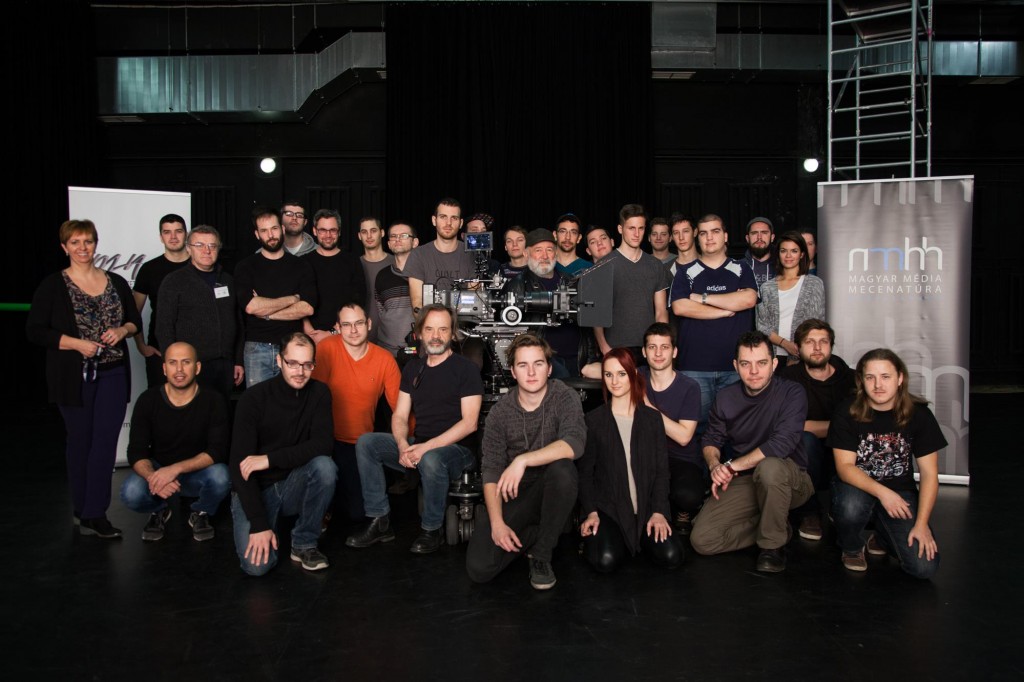
The XIIth Eye Golden Festival’s awards were handed over
On 2015 November 27th the Eye Golden Festival’s awards were handed over. With the help of the National Media and Infocommunications Authority for the second time in the Eye Golden’s history four winners received money prize. These awards were handed over by Dr. Tamás Kollarik who is the National Media and Infocommunications Authority’s program coordinator and a member of the Media Council. Mártyás Erdély was chosen as Cinematographer of the Year and Mari Törőcsik received the Hungarian Society of Cinematographer’s Life Achievement award for her 80th birthday.
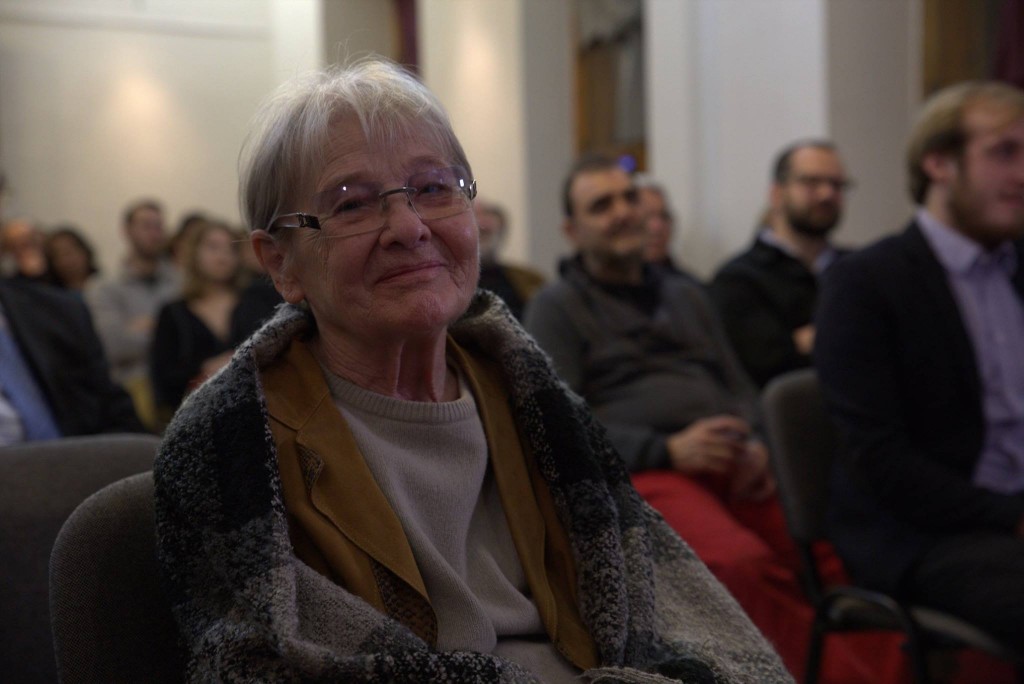 Mari Törőcsik
Mari Törőcsik
On the XIIth Eye Golden Cinematographer Festival the National Media and Infocommunications Authority handed out four awards which with the winners received a money prize too. The best Documentary Film was Natasha Pavlovskaya’s photography for Seb. In the Nature Film category Szabolcs Mosonyi won for Vad Kunság. The film was supported by the Media Council. In the TV film category Tamás Dobos seemed to be the best for his work in the Hivatal. For the best Short film Dániel Reich and Dániel Szőke received an award for Záridő, which was also supported by the Media Council.
This year the jury chose Mátyás Erdély as the Cinematographer of the Year, who received the György Illés award, for The Son of Saul.
In the Feature film category Márk Győri won the award for the Víkend, while in the Experimental category Ferenc Balázs Dimeth received the award for the Hero’s Journey. Zsolt Majoros won in the Music Video category for Bohemian Betyars’es: Összefúj a szél. The best in the Trailer category was Daniel Szőke’s promo video for the Aranyélet. In the Commercial category Balázs Dobóczi was found the best for the photography of the Zeneakadémia imázsklip. In the Student Film category András Táborosi won for his work in the Tolvaj, and with this price he received the Panavision’s 60 thousand dollar award which was handed over by Judit Romwalter from Sparks Kft.
The members of the jury were Kurt Brazda cinematographer AAC, IMAGO’s board member, Laszló Haris photographer, Miklós Fáy journalist, Emil Novák President of the Hungarian Film Academy and HSC cinematographer, Dánes János Orbán writer and Gusztáv Schubert critic and editor in chief at Filmvilág.
For the first time, this year there was a new category, the Extra where any film could enter the competition in which the cinematographer’s work is outstanding. The award was given to two cinematographers Béla Körtési for Mikor szolgának telik esztendeje and to Attila Zsigmond’s film for Mindennapi kenyerünket.
Emil Novák founded the Eye Golden Festival in 2004 at the time of György Illés’es birthday. From 2006 the students of the HSC Film Crew School also take part in the festival’s organization. The festival’s guest of honor was Josef Demian a teacher at International Film School Sydney. The three day cinematographer event series was supported by the National Media and Infocommunications Authority, Hungarian Film Academy, Hungarian Academy of Arts, Hungarian National Film Fund, Visionteam L.O. Kft., Sparks Kft., Schwindl Kft. and by the Bock Villány. (Eye Golden source: Dorka Tamás)
David Mihalyi
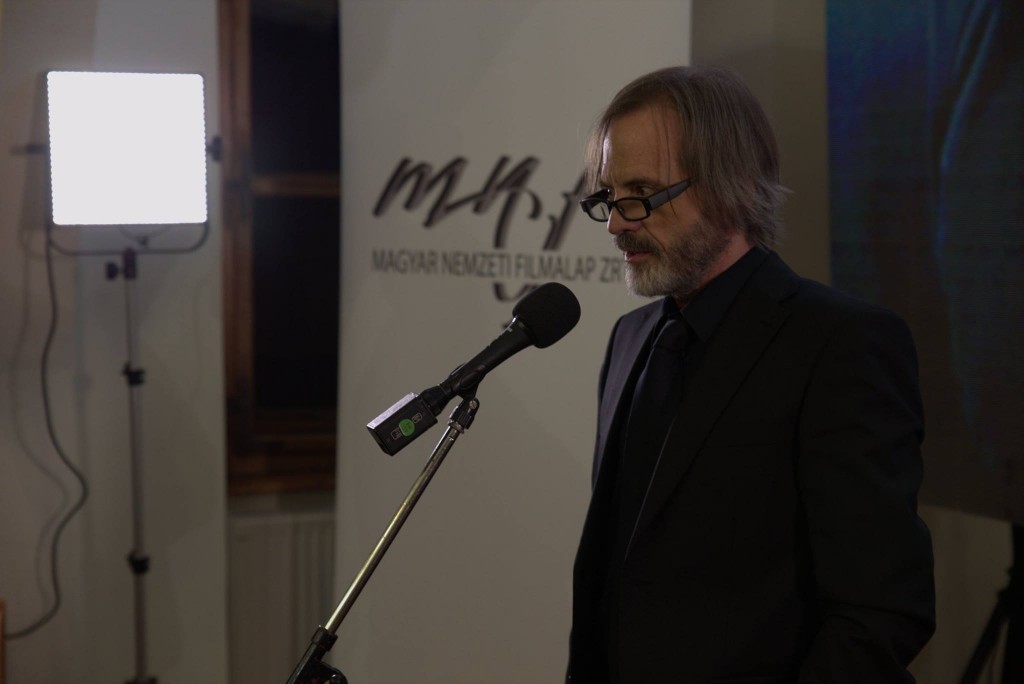 Emil Novák
Emil Novák
 Lajos Koltai, János Kende and Emil Novák
Lajos Koltai, János Kende and Emil Novák
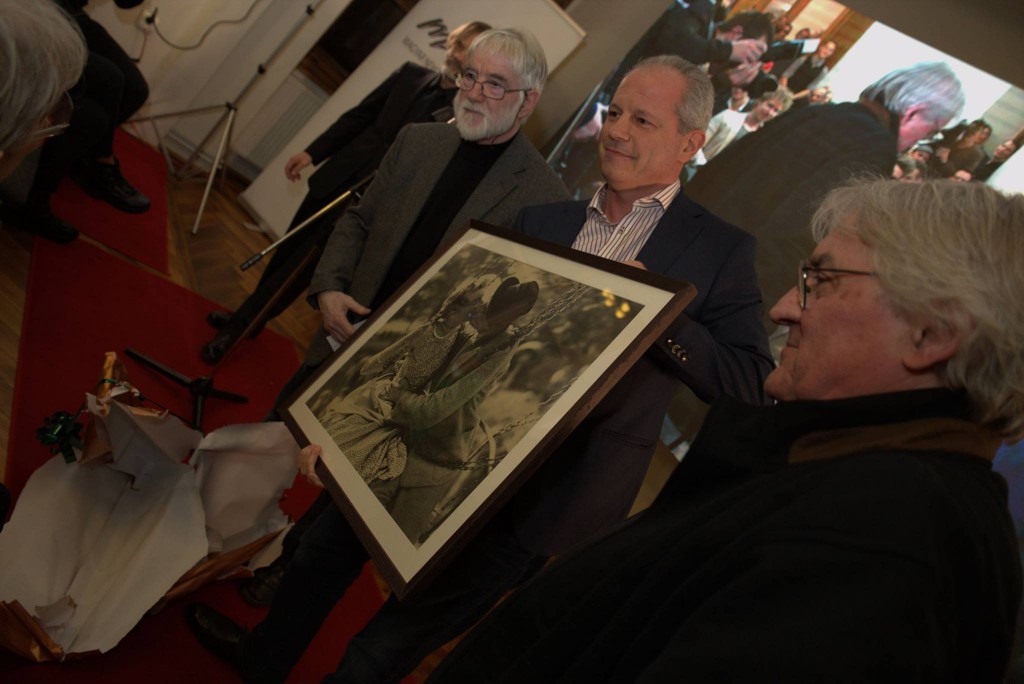 Zákonyi S. Tamás hands over the National Film Fund’s present to Mari Törőcsik
Zákonyi S. Tamás hands over the National Film Fund’s present to Mari Törőcsik
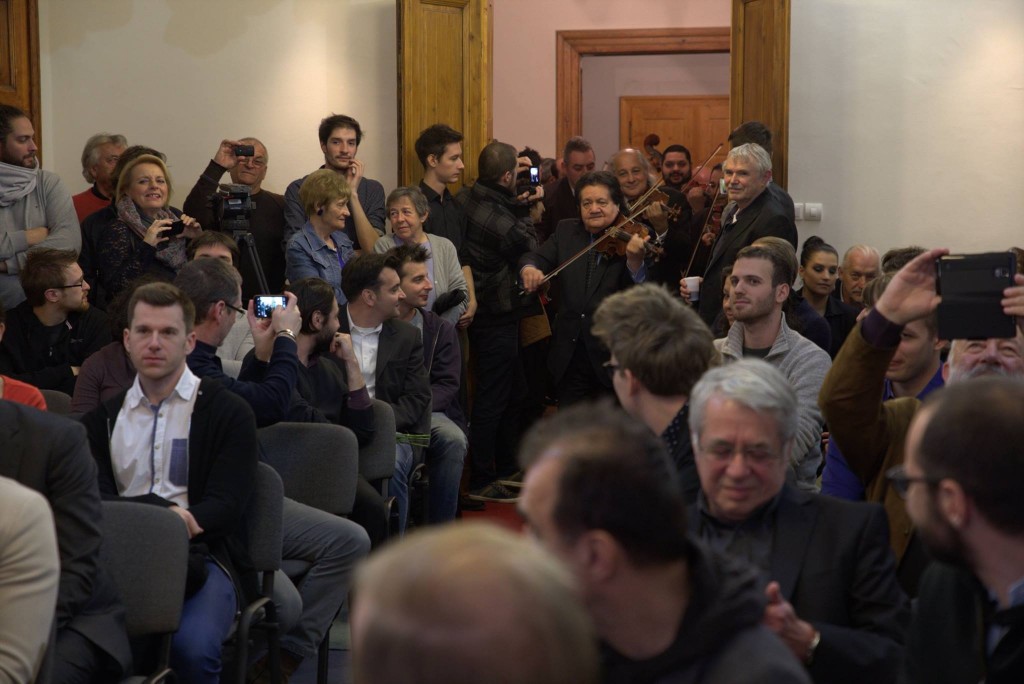
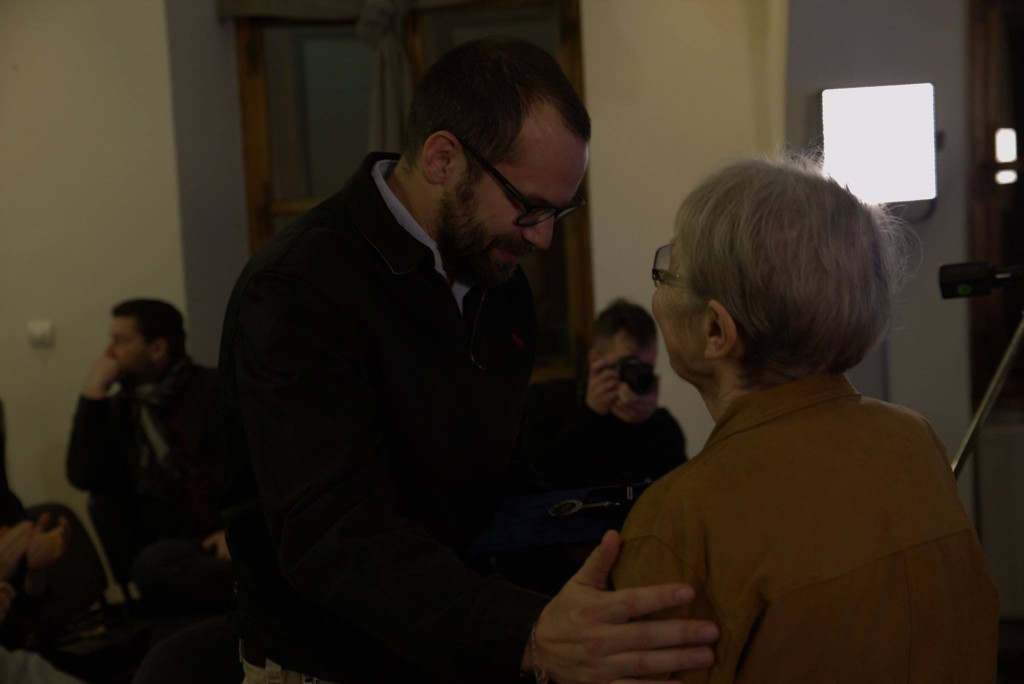 Mátyás Erdély and Mari Törőcsik
Mátyás Erdély and Mari Törőcsik
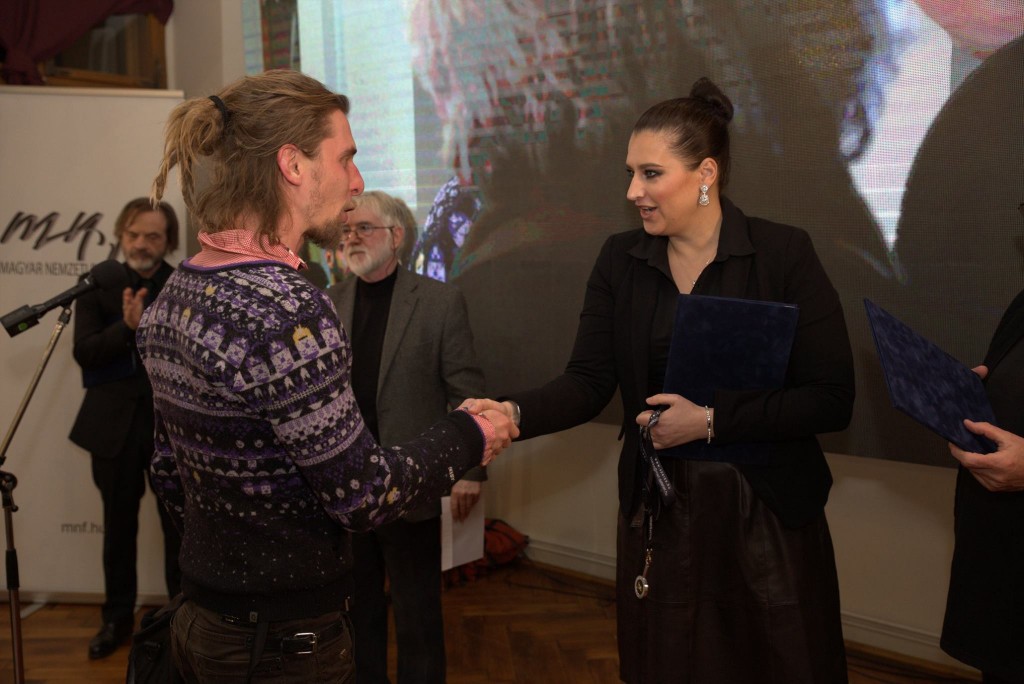 András Táborosi and Judit Romwalter
András Táborosi and Judit Romwalter

